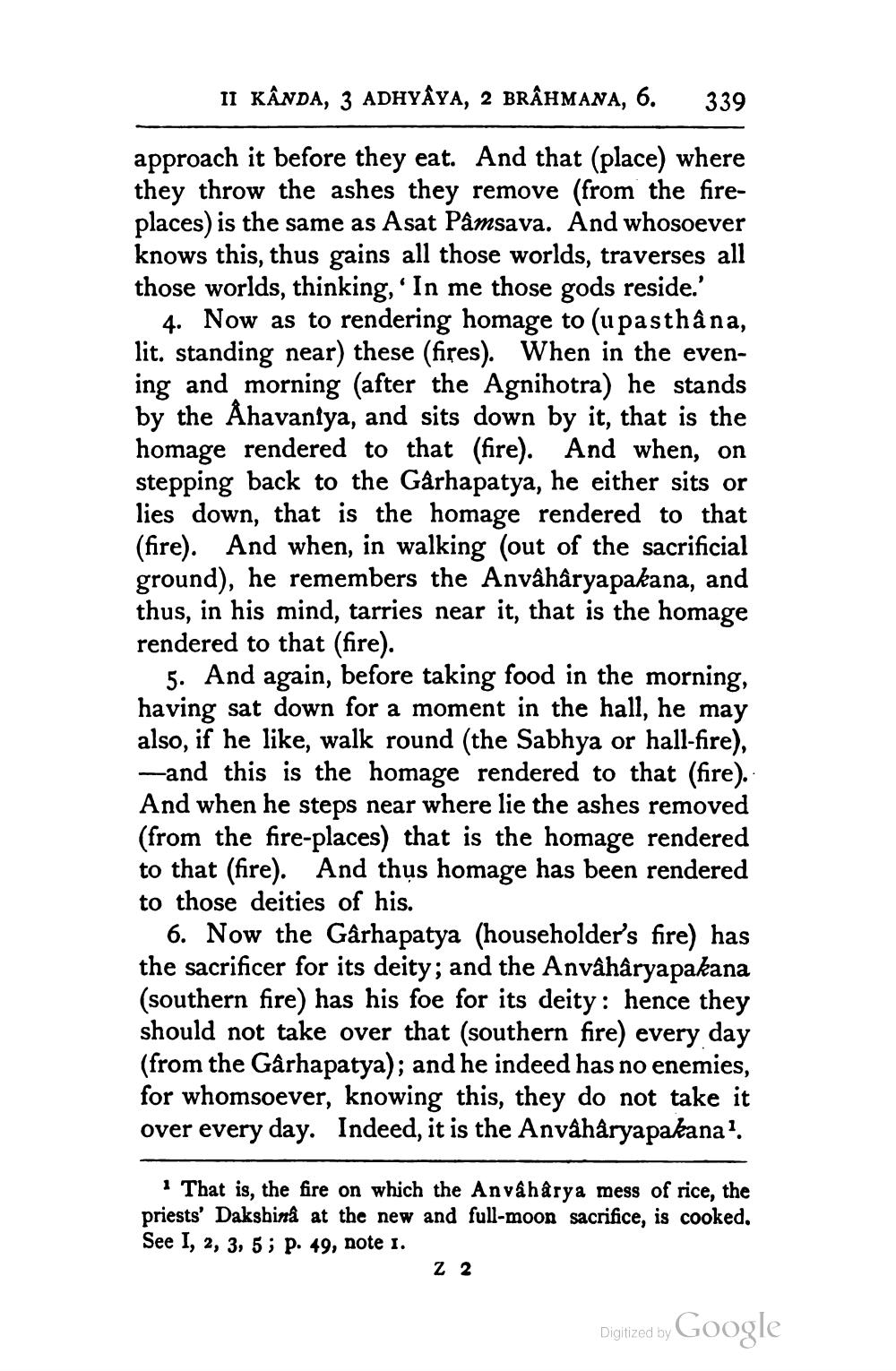________________
II KÂNDA, 3 ADHYÂYA, 2 BRÂHMANA, 6.
339
approach it before they eat. And that (place) where they throw the ashes they remove (from the fireplaces) is the same as Asat Pâmsava. And whosoever knows this, thus gains all those worlds, traverses all those worlds, thinking, 'In me those gods reside.'
4. Now as to rendering homage to (u pasthana, lit. standing near) these (fires). When in the evening and morning (after the Agnihotra) he stands by the Ahavaniya, and sits down by it, that is the homage rendered to that (fire). And when, on stepping back to the Garhapatya, he either sits or lies down, that is the homage rendered to that (fire). And when, in walking (out of the sacrificial ground), he remembers the Anvâhâryapakana, and thus, in his mind, tarries near it, that is the homage rendered to that (fire).
5. And again, before taking food in the morning, having sat down for a moment in the hall, he may also, if he like, walk round (the Sabhya or hall-fire),
—and this is the homage rendered to that (fire). And when he steps near where lie the ashes removed (from the fire-places) that is the homage rendered to that (fire). And thụs homage has been rendered to those deities of his.
6. Now the Gârhapatya (householder's fire) has the sacrificer for its deity; and the Anvâhâryapakana (southern fire) has his foe for its deity: hence they should not take over that (southern fire) every day (from the Gârhapatya); and he indeed has no enemies, for whomsoever, knowing this, they do not take it over every day. Indeed, it is the Anvähâryapakana?.
That is, the fire on which the Anvâhârya mess of rice, the priests' Dakshina at the new and full-moon sacrifice, is cooked. See I, 2, 3, 5; p. 49, note 1.
22
Digitized by Google




